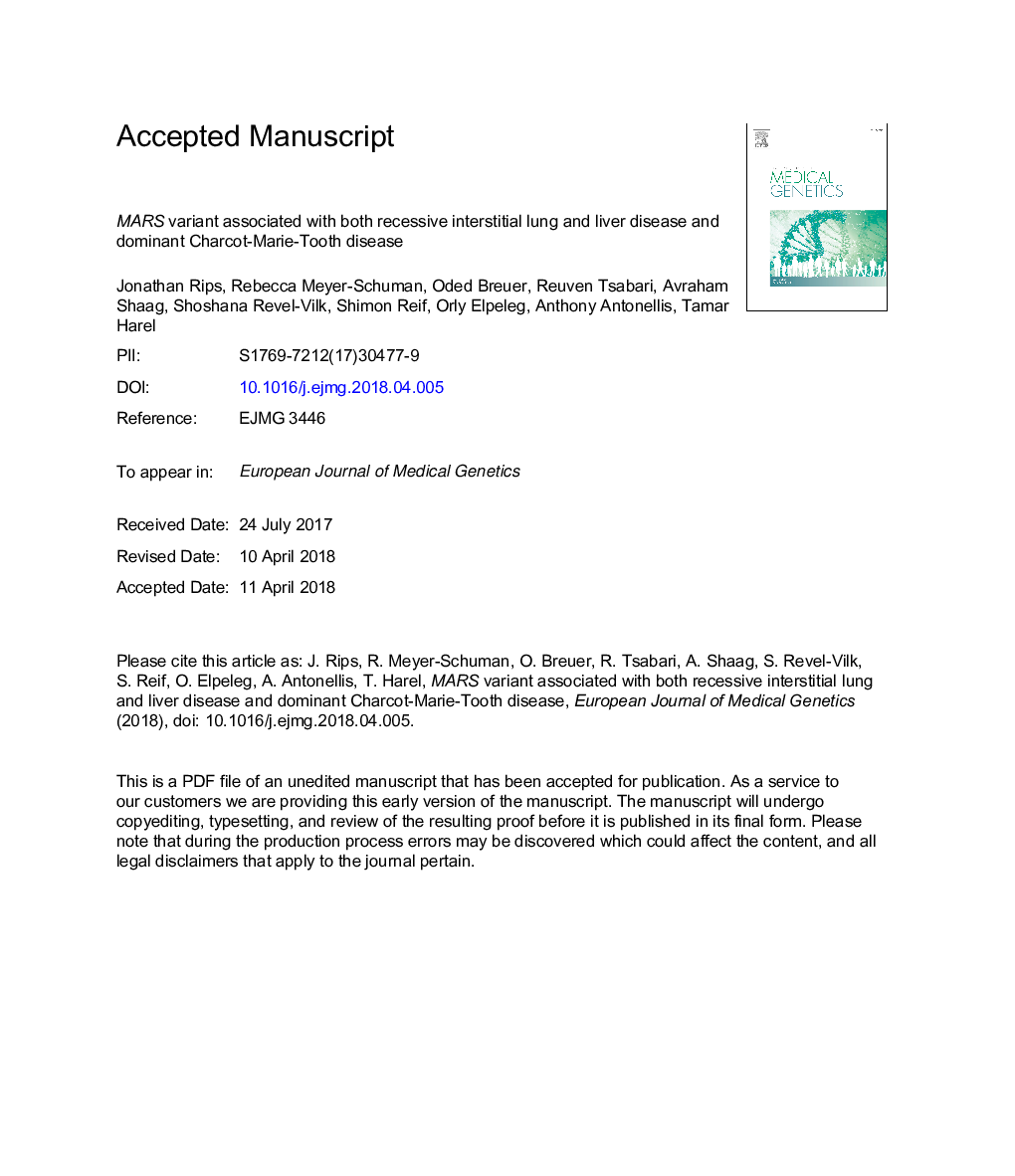| Article ID | Journal | Published Year | Pages | File Type |
|---|---|---|---|---|
| 8962721 | European Journal of Medical Genetics | 2018 | 20 Pages |
Abstract
Aminoacyl-tRNA synthetases (ARSs) are ubiquitously expressed enzymes responsible for charging tRNA with cognate amino acids during protein translation. Non-canonical functions are increasingly recognized, and include transcription and translation control and extracellular signaling. Monoallelic mutations in genes encoding several ARSs have been identified in axonal Charcot-Marie-Tooth (CMT2) disease, whereas biallelic mutations in ARS loci have been associated with multi-tissue syndromes, variably involving the central nervous system, lung, and liver. We report a male infant of non-consanguineous origin, presenting with successive onset of transfusion-dependent anemia, hypothyroidism, cholestasis, interstitial lung disease, and developmental delay. Whole-exome sequencing (WES) revealed compound heterozygosity for two variants (p.Tyr307Cys and p.Arg618Cys) in MARS, encoding methionyl-tRNA synthetase. Biallelic MARS mutations are associated with interstitial lung and liver disease (ILLD). Interestingly, the p.Arg618Cys variant, inherited from an unaffected father, was previously reported in a family with autosomal dominant late-onset CMT2. Yeast complementation assays confirmed pathogenicity of p.Arg618Cys, yet suggested retained function of p.Tyr307Cys. Our findings underscore the phenotypic variability associated with ARS mutations, and suggest genetic or environmental modifying factors in the onset of monoallelic MARS-associated CMT2.
Related Topics
Life Sciences
Biochemistry, Genetics and Molecular Biology
Genetics
Authors
Jonathan Rips, Rebecca Meyer-Schuman, Oded Breuer, Reuven Tsabari, Avraham Shaag, Shoshana Revel-Vilk, Shimon Reif, Orly Elpeleg, Anthony Antonellis, Tamar Harel,
